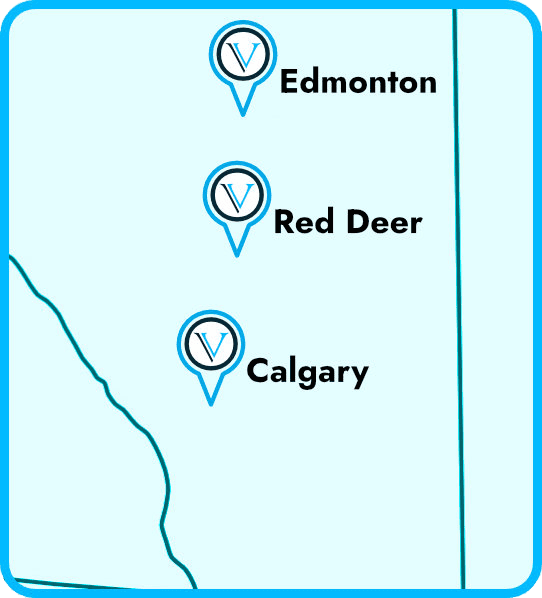
Some people fail to make adequate provisions for loved ones after they are gone by not putting the necessary time and effort into making a will.
Your will needs plenty of care and consideration even before you sit down and attempt to write it.
When you do start to put pen to paper, you may find that you need the help of an estate planning lawyer to ensure that you cover everything you intend to cover and make it enforceable.
Here are the main points to consider if you are just starting to plan your will…
Name a personal representative

An essential part of a will is to name your personal representative (sometimes called an executor or executrix).
This is the person who will be responsible for carrying out the wishes detailed in your will—a decision that should not be taken lightly. Age, mental state, availability, location, and financial literacy are just a few considerations when deciding who to name as your personal representative.
Often, it is advisable to name an alternate personal representative, in case your first choice is unable or unwilling to take the role after you pass away.
If no suitable representatives are available, a trust company can be named.
Take stock of your personal assets
Before you start writing your will, detail all of your assets/property with its estimated value (while bearing in mind that this may increase or decrease by the time you pass away).
This may include property, savings and investments, valuable assets like motor vehicles, jewelry or art collections, as well as family heirlooms.
The future value of assets is important, especially if you want to divide all property equally between beneficiaries after you die.
Any assets not given as specific gifts in your will are classified as the “residue” and you should specify how you want this to be distributed after you are gone.
Consider alternate beneficiaries
What happens if a beneficiary you name in your will dies before you? The gift will be returned to the estate as residue if no alternate beneficiaries have been named, so bear this in mind when you write your will.
It is advisable to include alternate beneficiaries so that your assets end up where you intend.
Make provisions for dependents

If there is any chance of you leaving dependent children behind, you can (and should) make a provision for them in your will.
You can name a guardian for minor children in your will but bear in mind that the guardian should be willing to take the role.
If you do not make adequate provisions for your children, spouse or any other dependents, a legal claim can potentially be made against your estate.
The Wills and Succession Act and the Family Property Act of Alberta state that adequate financial support must be made for dependents, such as legally married spouses, any child or adopted child under the age of 18 years, any adult child or adopted child with severe mental or physical disabilities, and Adult Interdependent Partners.
Decide property division after you pass
You can leave property to whoever you decide should have it.
No reasons need to be given for excluding certain family members but if there are controversial omissions, being explicit in your will can help the court enforce the decision if it is challenged.
Sometimes, people are left out of wills because of feuds but there are other reasons. For instance, if you were very generous to a person during your lifetime, you may feel that the person does not need any further generosity from your estate.
Bear in mind that if you own land or your home in joint title, it may transfer automatically to the other tenant after you die. Check this with your estate planning lawyer as there may be complexities to bear in mind.
Much can be determined by accessing the records at the Land Titles Office but you also need to be aware of the Dower Act, which provides for any surviving spouse to be able to live in the family home until death, if desired.
Update your will after major life changes
A will is not a “do once and forget” document. You should treat it as a “live” document that should be updated throughout your life if and when major changes occur. Only you can change or revoke your will.
Good examples of life changes that may necessitate a will amendment include marriages, divorces, and deaths in the family,
If changes occur but your will remains the same, the courts may need to refer to provisions made in the Wills and Succession Act for such situations.
To remain valid, small amendments to a will (often called “codicils”) must be suitably witnessed and an estate planning lawyer can help you arrange this. Major changes may require a new will to be written and your lawyer can advise you accordingly.
What happens if you die without a will in Alberta?
If you die without a will in Alberta, you are known as “intestate” and a set of intestacy laws will decide what happens to the assets in your estate.
So, rather than you deciding what happens to your assets after you die, the court appoints an executor. If you have minor children who are dependent on you, a guardian will be appointed.
Intestacy can have unintended consequences for your property and unnecessary stress and confusion for your family—especially if you are not formally married and are in a common-law relationship.
According to the Wills and Succession Act, your assets will be distributed as follows:
- If you have a spouse but no children: your spouse gets all of your estate.
- If you have a spouse and child/children: your spouse gets all of your estate unless the child/children do not belong to your spouse, in which case your spouse receives half of your estate and the rest is divided among your children.
- If you don’t have a spouse but have children: your estate is divided equally among your children.
- If you don’t have a spouse or children: your estate is divided equally between your parents (if you have only one surviving parent, they get your entire estate).
- If you don’t have surviving parents: your estate is divided amongst your siblings or your nieces and nephews in equal share (if your siblings are not alive).
Vest Estate Lawyers can help you create a comprehensive will that conveys your wishes and looks after your loved ones once you are gone.
Book a consultation with one of our experienced estate planning lawyers.

We currently have three offices across Alberta — Edmonton, Calgary, and Red Deer. However, we serve the entire province of Alberta. We also have the infrastructure to work with any of our clients virtually — even the furthest regions of Alberta.
Call us toll-free at 1-877-448-3131 to get routed to the best office for you or contact us online to schedule an appointment.
We also have a dedicated intake form to help you get the ball rolling. Our intake team will review your specific case and advise you on the next steps to take and what to expect moving forward.
Our offices are generally open 8:30 a.m.—5:00 p.m., Mon—Fri.


Lauren Eckstein
WILLS and ESTATES LAWYER
Lauren has focused her practice on Wills and Estates, including Adult Guardianship and Trusteeship matters. She offers comprehensive legal services in trust and estate planning, estate administration, and estate litigation.

